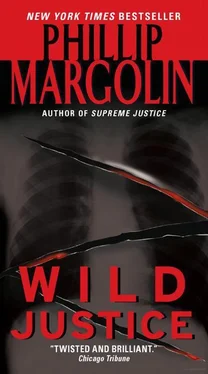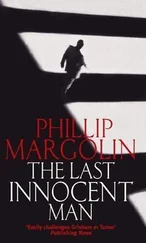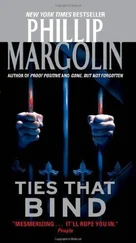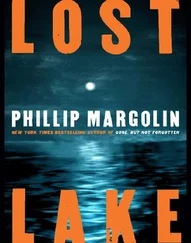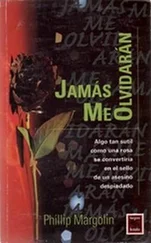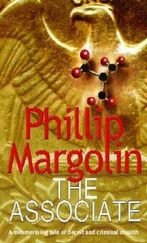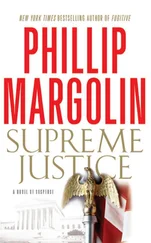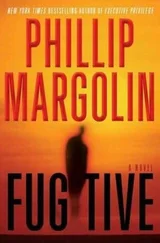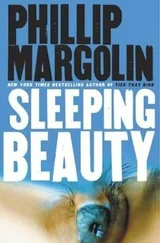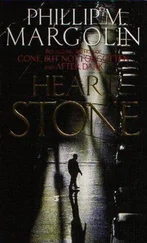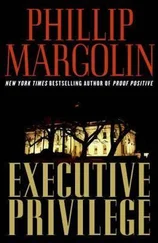Why don't you quit wasting my time and tell me what you want?
I need some information about Dr. Vincent Cardoni, a surgeon at St. Francis.
Don't know him.
Look, Art, you know I' m not wired. This is between us. I' m just trying to corroborate some information I received.
How can I help you if I don't know this guy?
By telling me if Martin Breach sold him two kilos of cocaine.
Prochaska moved very quickly for a man his size. Before Vasquez could react, Prochaska pinned him to the wall and pressed his forearm against Vasquez's windpipe. The beer bottle crashed to the floor. Prochaska tilted Vasquez's chin up, so he was forced to stare into the hit man's eyes.
I should crush your throat and kick you to death for even suggesting that I rat out my best friend.
Vasquez tried to struggle, but Prochaska had a hundred pounds on him. Panic made him twitch as he consumed the last of his air, but Prochaska confined him like a straitjacket. Just as Vasquez became light-headed, Prochaska eased off and stepped back. Vasquez sagged against the wall and gulped in the urine-scented air. Prochaska smiled wickedly.
That's how easy it is, he said. Then he was gone.
Chapter 10
An hour later Bobby Vasquez turned onto the two-lane highway that led into the mountains near Cedar City. The highway gained altitude quickly. Low-hanging clouds shrouded the tops of high green foothills, and the air was heavy with the threat of snow. On the north side of the highway, through a break in the towering evergreens, the cold, clear water of a runoff rushed downhill over large gray stones polished smooth by the constant torrent. On the south side, the highway ran beside a river that boiled with white water in some spots and crept along with lazy indifference in others.
While Mickey Parks had been undercover, Vasquez was the only person Parks could talk to without fear of giving himself away. He' d confided his fears and hopes to Vasquez as if Bobby were a priest in a confessional, and Vasquez had grown to like and admire the nanve, dedicated cop. Parks's death hit Vasquez hard. Prochaska's refusal to corroborate his tip did not dissuade Vasquez from going after his killers. It only made him more determined to bring down Breach.
A narrow dirt driveway led from the highway to the cabin. The weak light from the setting sun was cut off by thick rows of towering evergreens and the driveway was covered with dark shadows. At the end of a quarter mile the headlights settled on a modern home of rough cedar with high picture windows and a wide deck along the north and west sides. A stone chimney was part of the east side of the house and rose above the peaked shake roof. Vasquez wondered how much Cardoni's cabin cost. Even before his divorce, the best Vasquez had been able to afford had been a house half its size.
Vasquez parked the car so that it was pointing back toward the road. He pulled on latex gloves and walked toward the cabin. Crime was almost nonexistent in this mountain community and the house did not have an alarm. Once he stepped inside he would be committing a felony, but Vasquez had to know if Cardoni really had two kilos hidden in this house. If he found the stash, he would leave and figure out a way to get a warrant. He could even tail Cardoni and try to catch him selling. The main thing was to find out if he was on a wild-goose chase.
Vasquez turned his collar up against the chill and worked his way around the house, trying the exterior doors before resorting to forced entry. He got lucky when he turned the knob of a small door in the rear of the garage and it opened. Vasquez turned on the garage lights and searched. The garage had an unused feel to it. No tools hung from the walls; Vasquez saw no gardening equipment or junk lying about. He also found no cocaine, but he did find a key for the house hanging on a hook. A moment later Vasquez was standing in a downstairs hall at the foot of a flight of stairs.
At the top of the stairs was a living room with a wall of glass that provided a panoramic view of the forest. Something moved on the periphery of his vision, and Vasquez went for his gun, stopping when he realized that he' d seen a deer bounding into the woods. Vasquez exhaled and turned on the lights. He had no fear of being discovered. Cardoni's nearest neighbors were half a mile away.
The living room was sparsely furnished; the furniture was cheap and looked out of place in such an expensive home. It occurred to Vasquez that there was no dust or dirt anywhere, as if the living room had been cleaned recently. There were plastic plates and cups in the cupboards, a few mismatched utensils in the drawers. A pottery mug half filled with cold coffee sat on the drain board next to the sink. Vasquez also noted a coffeepot still holding a small amount of coffee. He touched the pot. It was cold.
The master bedroom had the same unlived-in feel. Vasquez saw an empty bookcase, a wooden straight-back chair and a cheap mattress that rested on the floor. There were no sheets on the mattress, but there were several dried brown spots that looked like blood. Vasquez searched the closets and the connecting bathroom. Then he moved on to the other rooms on the main floor. The more Vasquez searched, the more uneasy he felt. He had never seen such a tidily desolate home. Aside from the coffee cup and the coffeepot, there were no signs of life anywhere.
When Vasquez finished with the main floor he headed downstairs to the basement. There were four rooms, one of which was padlocked. Vasquez searched the other rooms. All were empty and devoid of dust or dirt.
Vasquez returned to the padlocked door. He had a set of lock picks with him and was soon inside a long and narrow room with walls and floor of unpainted gray concrete. A faint unpleasant odor permeated the air. Vasquez looked around. A sink was in one corner and a refrigerator in another. Between them, in the center of the room, was an operating table. Hanging from the padded tabletop were leather straps that could be used to secure a person's arms, legs and head. A metal tray that would hold surgical implements during an operation was completely empty.
The detective studied the floor around the operating table more closely and spotted several bloodstains. Vasquez knelt to get a better look at the blood and caught sight of something under the table. It was a scalpel. Vasquez picked it up gingerly and examined it closely. Flecks of dried blood covered the blade and the handle. He laid it carefully on the tray, then turned his attention to the refrigerator.
Vasquez grasped the handle. The door caught briefly, then popped free. The detective blinked hard, then released the handle as if his fingers had been burned. The refrigerator door slammed shut, and Vasquez fought the urge to bolt from the room. He took a deep breath and opened the door again. On the top shelf were two glass jars with screw-on tops labeled viaspan. The jars were full of a clear liquid with a faint yellow tinge. Vasquez spotted a plastic bag filled with a white powder on the bottom shelf. Not two kilos' worth. Nowhere near that amount. Days later the state crime lab would report that the powder was indeed cocaine. By that time, Vasquez would have trouble remembering that cocaine was even involved in the case against Dr. Vincent Cardoni. What Bobby Vasquez would remember for the rest of his life were the dead eyes that stared at him from the two severed heads that sat on the middle shelf.
Chapter 11
Milton County sheriff Clark Mills, a sleepy-eyed man with shaggy brown hair and a thick mustache, struggled valiantly to maintain his composure when Vasquez showed him the severed heads. Both belonged to white women. One head was oval in shape and covered with blond hair that was stiff and stringy from the extreme cold. It leaned against the interior wall of the refrigerator like a prop in a horror film. The second head was covered with brunette hair and leaned against the first. The eyes in both skulls had rolled back so far that the pupils had almost disappeared. The skin looked like a pale rubber compound created by a special-effects wizard and was ragged and uneven where the neck had been severed from the body.
Читать дальше
